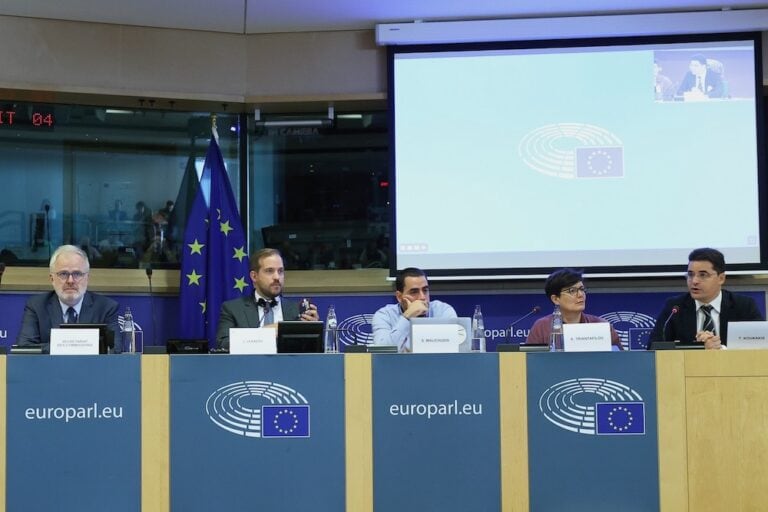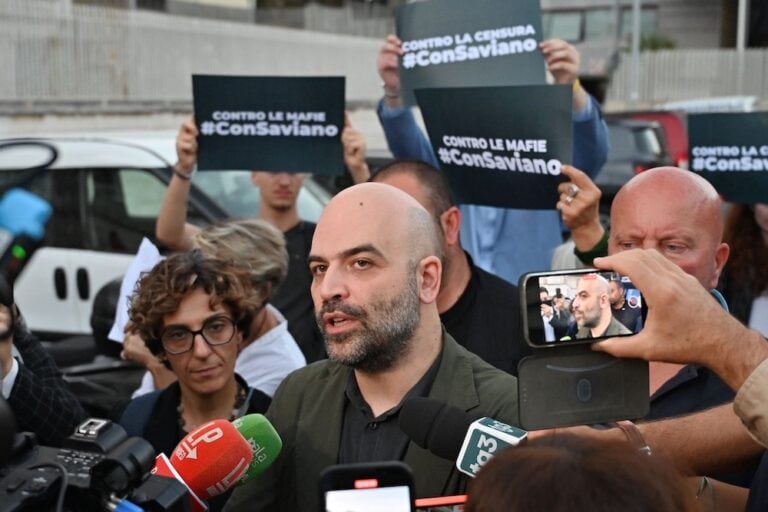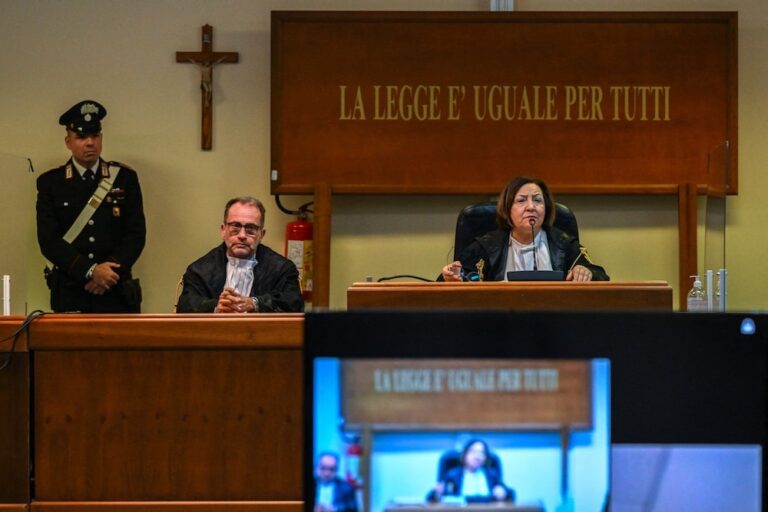Political debate will only be allowed if all 18 parties are guaranteed equal air time.
(IFJ/IFEX) – 11 February 2010 – The European Federation of Journalists (EFJ) says that an Italian law banning political debate on public television is the latest “nail in the coffin of media freedom” as the country heads for important regional elections next month.
The EFJ, the regional group of the International Federation of Journalists and representing more than 260,000 journalists throughout Europe, says the parliamentary vote yesterday, which effectively takes politics out of the talk shows on the Italian public television network RAI, will confirm Italy’s position at the bottom of the European league table for pluralism and press freedom.
Prime Minister Silvio Berlusconi’s ruling Party’s majority on the parliamentary watchdog that oversees public broadcaster RAI backed the new regulation, which forces the public broadcaster RAI’s most popular talk shows to bin their political content or move away from their prime time slots on the television schedule. Now workers at RAI are threatening a strike in the coming days unless the rules are withdrawn.
“Such an absurd regulation will result in an almost complete ban of political debate in Italy’s public broadcasting system,” said EFJ President Arne König. “It’s a decision that is bad for democracy both in Italy and beyond and brings the country and its government into disrepute.”
Under the new rules, which were proposed by the member of the small Radical Party, Marco Betrandi, political content will only be allowed if all 18 parties standing in the elections have each the same time on political shows, which programme makers say would make the shows unworkable. The rules shall apply from 28 February until 28 March, when the country’s regional elections are held.
“It’s an outrageous and inexcusable attempt to interfere in broadcasting and renders the possibility of proper political discussion and debate impossible,” said König. “It’s simply another nail in the coffin of freedom on Italy’s public airwaves.”
The EFJ and its affiliate in Italy, the Federazione della Stampa Italiana (FNSI), say the latest political interference in the editorial policy of RAI is in breach of international standards on reporting during election times, as well as out of step with Council of Europe declarations on public service broadcasting, fundamental rights to freedom of expression and press freedom. By providing access to political contestants to communicate their message, the media plays an essential role as the primary source of information about politics. This has to be organised in the context of responsible journalism, not subject to political meddling.
“We still wait for action at the European level to restore respect for media freedom and the rights of journalists, particularly in Italy,” said König. “Journalists in Italy are increasingly impatient and want European policymakers to insist that political leaders in Italy should follow European norms of press and media freedom.”
The EFJ and the FNSI are backing the Union of Rai Journalists (Usigrai) over its threat to call a stoppage of work unless the regulation is withdrawn.


